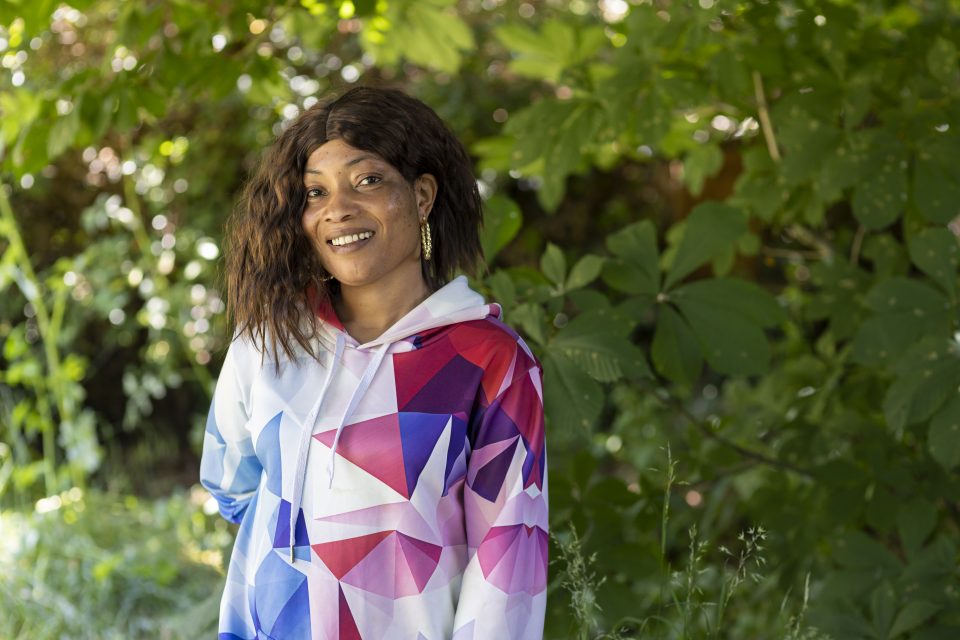When Joy Omigie talks about her life, she exudes warmth and kindness, sharing her hopes to become a nurse because she wants to help people. She speaks proudly about her four children. She’s a refugee, and she’s excited for the future. What people wouldn’t know is the difficult journey she has been on to get to this point.
“I’ve seen a lot in this life,” Joy reflects sadly. “There were times when I thought about dying, just to escape the pain, to not face it anymore.”
Joy was uprooted from her home in Liberia as a 7-year-old, then some years later becoming a victim of trafficking in several European countries, an ordeal that lasted years.
In 2020, Joy was granted refugee status in the UK, and thanks to the programmes offered by the charity Breaking Barriers, she has an education, a new language and a promising future.
Joy is one of over 2000 refugees who have benefited from the programmes Breaking Barriers offers. As a charity dedicated to supporting refugees through one-to-one advice, education, and training, they are launching a new programme called Unlocking Refugee Talent.
In a first-of-its kind collaboration, Microsoft, Barclays LifeSkills and LinkedIn are teaming up with Breaking Barriers to run the programme. Together they will take on the dual challenge of finding employment for refugees and developing the digital and core employability skills needed for today’s economy.
Joy now works as a healthcare assistant, and her experience with Breaking Barriers shows what can be achieved when talent is unlocked.
A difficult journey
When Joy was taken to Nigeria from Liberia at the age of seven, the home she was adopted into was far from nurturing. “The woman who took me in emphasised she wasn’t my mother,” Joy recounts. “I didn’t have the opportunity to attend school, so I used to sell Coca-Cola to help with finances.”
Some years later, Joy became a victim of trafficking, forcibly moved to Russia, Ukraine, Slovenia, Italy, and the Netherlands, before finally landing in the UK. She was subjected to exploitation and abuse.
A chance encounter in the UK with a man who spoke Italian sparked a glimmer of hope. Having learned the language when she had been trafficked there, Joy was able to speak with him in Italian, without her captor understanding. “The man realised something was wrong and decided to help me escape,” Joy recalls.
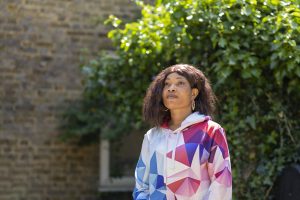
With his support, Joy made her way to safety at an immigration centre that provided her with a haven and the therapeutic support she needed. But her challenges weren’t yet over. “I couldn’t speak English; I couldn’t write,” she admits.
Staff at the centre encouraged her to pursue higher education. Bolstered by their encouragement, coupled with a determination to rebuild her life, Joy enrolled in college. “They gave me the opportunity to learn English,” Joy says. “I wanted to learn how to use a computer too. It was a source of shame for me, not knowing.”
Rebuilding with Breaking Barriers
It was then that Joy discovered Breaking Barriers. Joy’s case worker introduced her to Marta Della Libera, an employment advisor for the charity. “At the time, I struggled with computer skills, but thanks to Marta and Jolie — a volunteer who mentored me in digital literacy — my confidence began to increase. I slowly learned how to search for things on the internet, create a CV, and save files on my laptop.”
Thanks to the support of Breaking Barriers, coupled with her unwavering determination, Joy accelerated her educational journey, attending online classes during the pandemic. “I wanted to have confidence when speaking to people, I didn’t want to be scared,” she explains. “Learning English and computer skills became my pathway to independence.”
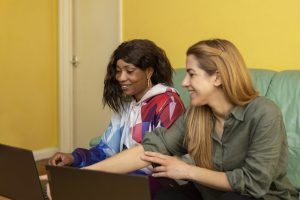
The support that Breaking Barriers provides Joy and many refugees like her is transformative. “A lack of digital skills can be a significant barrier into employment for any job hunter,” explains Matt Powell, chief executive of Breaking Barriers. “For refugees, the digital skills obstacle is further exacerbated as they find it four times harder to access employment.”
For refugee women, this employment gap is even higher with employment rates over 30 percentage points lower than UK-born women. According to government statistics, it may take as long as 25 years for this gap to close.
In Breaking Barriers’ own research they found that digital literacy is a significant barrier for refugees, with 26 percent reporting low levels of digital skills.
Unlocking Refugee Talent
The new Unlocking Refugee Talent programme combines the resources of Breaking Barriers Microsoft, LinkedIn and Barclays LifeSkills. The programme aims to offer a comprehensive support package for refugees who are either ready to work, or those who need to develop more skills — from languages to interview techniques — to access the job market. It will run during the next 18 months and will initially support 250 refugees.
“Unlocking Refugee Talent is breaking down the digital skills barrier by drawing on the resources, talent and offers of all the partners,” says Powell. “Together, we aim to help refugees find meaningful employment while also starting to fill a UK-wide workforce gap in digital skills.”
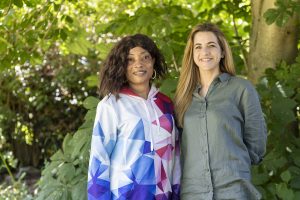
Refugees taking part in the programme will have access to a range of courses and resources offered by all partners to help clients develop skills for in-demand tech roles, as well as core transferable employability skills for other roles that incorporate tech elements.
Microsoft, through its Skills for Jobs platform and certifications, will offer digital skills training, along with a donation of Surface devices. Microsoft’s Get On campaign aims to help 1.5 million people build careers in technology and help 300,000 connect to tech job opportunities. Get On addresses the widening digital talent gap in industry to accelerate technology adoption, drive UK productivity, and increasing access to tech careers and talent pathways.
Realising dreams
Joy Omigie is a testament to the work that Breaking Barriers is doing. While at first Joy only had a smartphone to work from, Breaking Barriers provided access to a laptop and helped teach her to use it effectively. They connected Joy to recruitment and job fairs where she found her current role as a healthcare assistant.
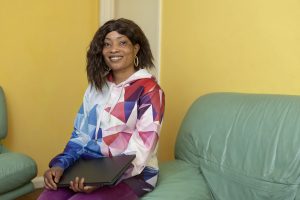
“My dream is to become a nurse because many people have shown me love and kindness during my difficult times,” says Joy. “The best thing I can do is give back to society by becoming a nurse and helping people, just as others helped me.”
But more than that, Joy’s story is also testament to her own strength and resilience. Joy has since received a conditional offer to study nursing and midwifery at university in the coming academic year. And as she continues her journey, as a single mother to four children, working, and educating herself, Joy is breaking barriers one step at a time.
“No matter what challenges you face, you can overcome them,” she says. “Believe in yourself and never give up.”
Resources
The Unlocking Refugee Talent programme is open to people granted refugee status who self-refer or are referred to Breaking Barriers.
To find out more about the work that Breaking Barriers is doing and to access their resources, visit their website. You can find Microsoft’s Digital Skills hub here.


